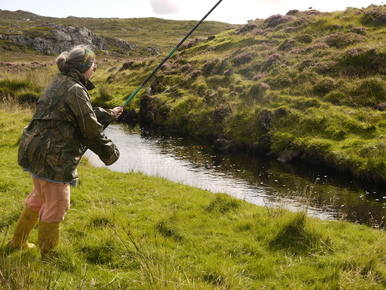ON BUMP STARTING or, A SONG OF AUTOPARTS
Posted on

ON BUMP STARTING or, A SONG OF AUTOPARTS
When the car died at Autoparts on Saturday, I had to admit it was a convenient location. Driving up to town, the battery warning light had been on the whole time, the windscreen wipers were going at half speed, and the jets of water that clean the windscreen were barely hitting the bottom of the glass.
With the garages all still closed up for the holidays, we went into the shop for some helpful advice. To cut a long story short, the probable diagnosis was a knackered alternator, and it was decided that if the car could be bump-started, we could limp it around the corner to our garage where it would be in situ for opening time on Monday.
There’s something about bump starting that sends my brain into freeze mode. The situation is always accompanied by a gaggle of blokes who all know their way around a car, and automatically assume – in my case, rightfully – that the poor little woman doesn’t have a clue.
My husband, who cheerfully admits that he knows nothing about cars and he’d rather ask a mechanic any day, is there, getting ready to push. Then there are the two incredibly helpful Autoparts guys, who explain in words of one syllable how I should proceed at the wheel. They ask – nicely – if I’ve done this before, and my instant answer is yes. Which is true. What I don’t tell them is that I’m actually not very good at it.
I should know how to do this. I’ve been here many times before, usually trying for a start on our helpfully steep downward hill at home. Even there, my success rate is about one in ten, and has more to do with random luck rather than a thorough understanding of the principles.
So this is how it goes in the Autoparts carpark: Handbrake off. Second gear position, with clutch engaged. When the car is moving, turn on the key, disengage the clutch and vroom vroom we go.
Or not. The first time, I remember to take off the handbrake, but for some peculiar reason, put the car in fourth gear. I am already embarrassed, which doesn’t help. The second time, I do even better. The handbrake is off, but the car isn’t moving. After a tactful pause, one of the Autoparts guys appears at the window.
“You’re in reverse, love.”
“Are you sure you know what you’re doing?” my husband says, less tactfully.
The third time, I almost do it. Handbrake off, second gear position, clutch engaged. I triumphantly disengage the clutch …. and forget to turn the key.
I jump helpfully out of the driving seat, my driver credentials in tatters. “You do it,” I say.
Now the reinforcements arrive, so there are three members of the Autoparts team trying to get some life out of my car. Already embarrassed three times, I now feel desperately guilty that half the staff seems to be involved in what should be a perfectly straightforward operation.
It is certainly no reflection on them that it refused to fire. They give it another three good goes, then reluctantly push it back into the parking space, keep the keys so it can be picked up on Monday, and reassure us that the car is safe.
Grateful thanks to Autoparts, then, for all their help – and to our friend Brenda, who rescued us from the carpark along with our musical instruments and general clobber, which meant we could participate in the band practise for which we were originally headed. She then served up a great festive tea and gallantly drove us home to Gravir – a round trip of fifty four miles. We owe her a big one!
